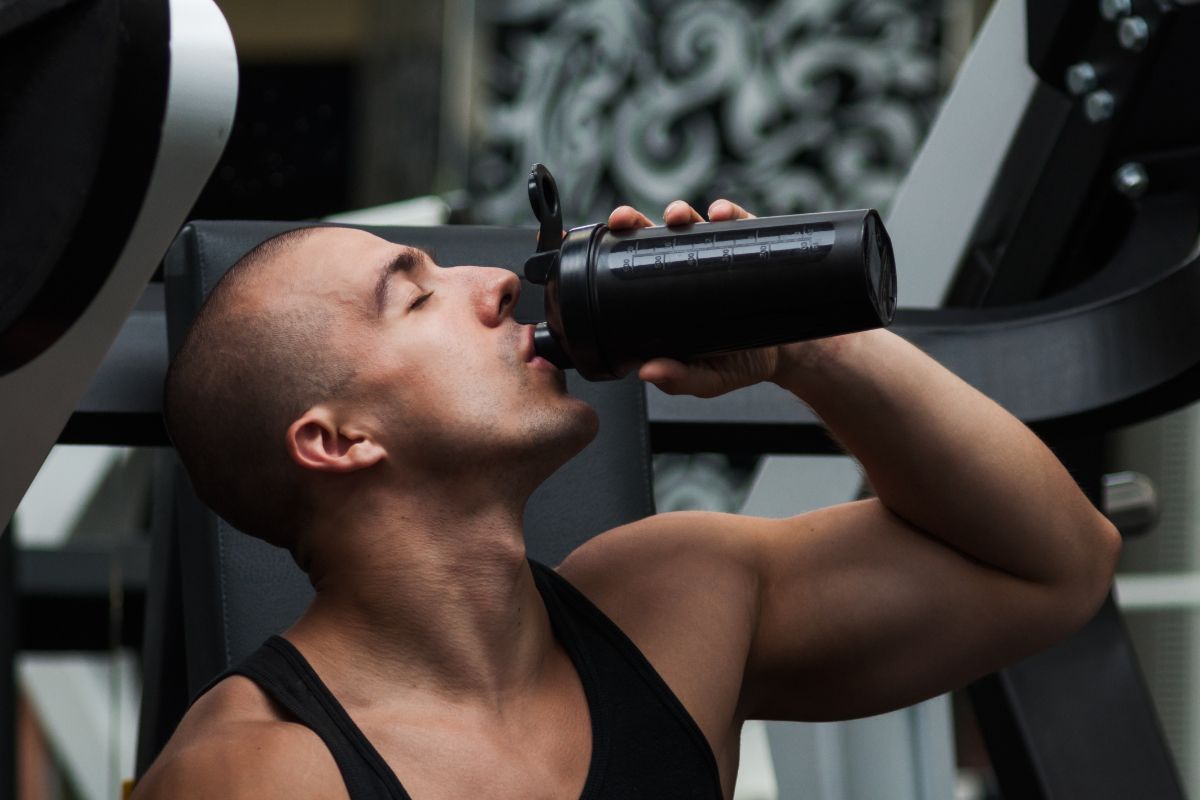Can You Drink Protein Shakes Without Working Out
Typically, protein smoothies feature decadent ingredients like peanut butter and chocolate, making them surprisingly calorically packed.
If you don’t exercise and consume a lot of additional calories from protein beverages, you may gain weight.
Some protein smoothies are gritty and difficult to swallow, while others are rather delicious.
Those who feel it is permissible to take protein shakes without exercising might find this problematic.
If you consume protein shakes without engaging in physical exercise, you may exceed your daily caloric needs and gain weight.
Can You Drink Protein Shakes Without Working Out?
The average protein shake has around 30 grams of protein, which is over one-third of the daily protein requirements for a 150-pound individual on a high-protein diet.
However, these 30 grams are readily available in entire meals.
Additionally, a chicken breast will likely be more filling than a smoothie.
Because liquid calories have less of an effect on satiety, they can contribute to overconsumption.
Vegetables and whole grains are superior sources of fiber, a nutrient that slows digestion and delays the release of the appetite-stimulating hormone ghrelin.
In truth, only a tiny portion of the population, such as the really active, the elderly, and the unwell, may benefit from protein shakes.
Six-day-a-week gym-goers may require a substantial amount of protein supplements for muscle repair and recovery, which may be difficult to achieve from a balanced diet.
The appetites of the elderly and the ill are often diminished, but their protein requirements may be elevated due to illness.
Consequently, people can get the benefits of protein shakes without engaging in physical exercise, as protein beverages are often more palatable than solid foods.
They are more of a “want to have” than a “need to have” for everyone else.
If you have experimented with your diet and discovered that replacing a meal with a protein shake allows you to consume fewer calories without feeling hungry, this may be a legitimate strategy.
If you sometimes desire one as a treat, you should cut your daily calorie consumption to compensate.
Include fruits, vegetables, lean protein, and healthy fats in a single 8-ounce portion, and limit yourself to a single portion.
Consider beginning an exercise regimen, which will not only allow you to sometimes consume protein shakes but also facilitate weight loss and enhance your general health.
How Often Should You Have Protein Shakes?
“Protein windows” and timings are regularly contested in lifestyle and fitness circles in relation to the timing of your protein shake.
Others recommend you have a longer window after exercise to maximize your protein consumption.
The best time to have a protein shake and the relevance of keeping a consistent protein intake throughout the day have previously been highlighted.
Average sedentary adults require between 45 and 55 grams of protein per day, but exceptional athletes require over 120 grams.
Regardless of the type of exercise conducted, protein is required for healthy muscle growth via muscle protein synthesis and recovery after stress (cardio, resistance training, or something else).
Read this guide to learn more about how much protein you may require based on your weight, age, gender, and goals, as well as how much protein you may require.
So, what may result from consuming protein smoothies without exercising? Let’s investigate this.
Can I Take Too Much Protein?

The maximal rate of muscle protein synthesis depends on the individual’s body mass and amount of physical activity.
A professional athlete, for instance, requires no more than 1.8 grams of protein per kilogram of body weight.
Those of us who are not elite athletes have a far lower protein requirement, and those who eat protein shakes without exercising may gain weight owing to the extra calories, as they will not be developing muscle growth.
A protein-rich diet that is poorly used by the body might result in fatigue, inhibit muscular growth, and make you feel sick when you think about protein.
The underlying research may be found in our guide to the warning signs of excessive protein consumption.
Can You Use Protein Shakes For Weight Loss?
You can use protein shakes as a weight loss aid; however, protein powder will still contain calories, so it is essential to perform research and determine the optimal balance.
If your caloric intake is less than your energy expenditure, the calorie deficit will help you lose weight.
If the overall number of calories you consume exceeds your energy expenditure, you will gain weight over time.
If you do not maintain a balance between the calories you consume and the calories you expend, you will not lose weight.
Using protein to lose weight boosts metabolism and reduces appetite, so you may find yourself avoiding snacks!
Therefore, occasionally substituting a meal with a protein shake has no detrimental effects; nevertheless, it is important to remember that protein shakes often lack the minerals, teen counseling katy, vitamins, and other essential components included in a healthy meal.
Explore Also:
Creativehouseblog
Dietsheriff
Gigasecurehome
Using a meal replacement or healthy smoothie will provide you with 20 grams of protein and 22 essential vitamins and minerals obtained from plant-based sources per serving.
Final Thoughts
In conclusion, there is no need to worry if you have a protein shake on a rest day or a day when you conduct fewer activities than usual.
However, consuming high-protein beverages without boosting your protein intake during exercise might result in weight gain.
It is vital to select the appropriate powder for your needs.
High-quality plant-based protein devoid of a multitude of chemical components may be expensive, register a business Bangladesh, and inefficient usage of it may be a waste of money.
No one likes wasting money or protein, so before you begin producing shakes, be sure you understand your needs and goals.
Remember that protein powder is not a cure; in order to achieve your goals, you must exercise, consume a healthy diet, and stay hydrated.
When required, you may supplement your diet with more protein.







